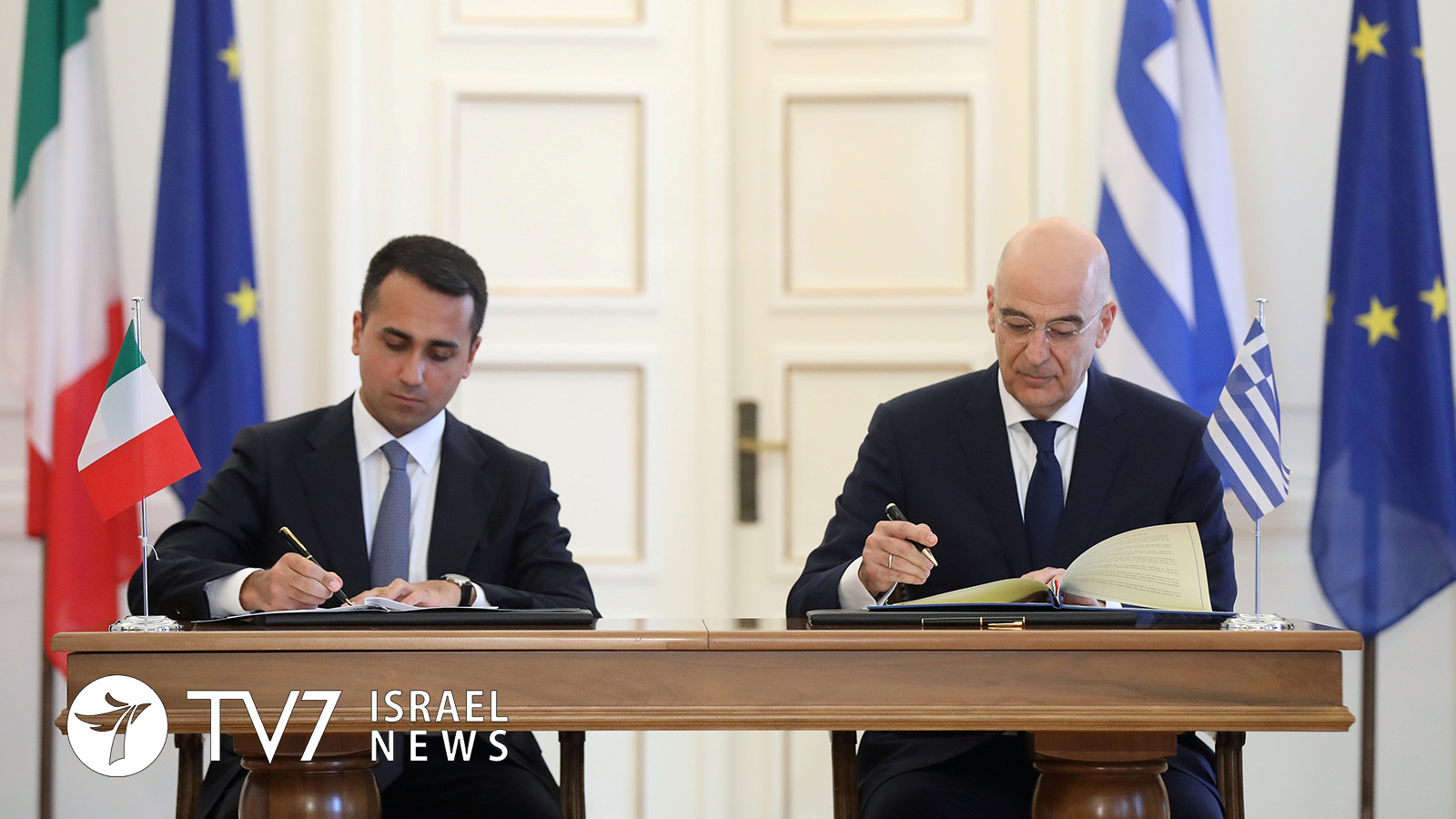Greece has expanded its own efforts to bolster its legal position by signing a number of treaties with global and regional actors, in response to the apparent Turkish efforts to claim exclusive control over gas exploration zones in the Eastern Mediterranean.
Among these pacts is a bilateral agreement for the delimitation of maritime zones in the Mediterranean between Greece and Italy that was officially ratified in Athens on 9 June.
Italian Foreign Minister Luigi Di Maio said the agreement with Greece also included “two legal agreements for natural resources in the Mediterranean and the protection of Italian fishing rights.” Describing the development as “significant,” he said that in addition to “settling maritime relations with Italy, it takes care of the rights of fishermen, observes and respects the sovereign rights of Greece.”
Greek Foreign Minister Nikos Dendias underscored that the “delimitation of maritime zones was achieved in accordance with international law and with valid agreements,” before going on to condemn “non-existent agreements such as that of Turkey and (Libyan Prime Minister Fayez al) Sarraj.”
Details of Rome’s accord with Athens effectively extends their 1977 agreement on continental shelves in the Ionian Sea, although the details have yet to be released.
Turkey was nevertheless quick to respond by dispatching an official high-level delegation to Libya, where Ankara has made significant investments to secure the survival of its partner, the Western-based Libyan Government of National Accord (GNA). According to Turkish Foreign Minister Mevlut Cavusoglu, “the aim of our visit was to stress our support for Libya, once again, in a powerful way. We have also discussed in detail ways of enhancing cooperation in every field. We have discussed the steps that will be taken in the field, as well as political relations. As you know, we have a memorandum of understanding on Delimitation of the Maritime Jurisdiction Areas and an energy agreement. We have also discussed our cooperation in Mediterranean and the steps we will take.”
In light of presiding civil war between the Tripoli-based GNA and the Eastern based Libya National Army (LNA), Turkish Energy and Natural Resources Minister Fatih Donmez announced late last month that his country’s exploration activities in the Mediterranean will commence only within three to four months. Over the past several weeks, Ankara managed to alter Libya’s balance of power in favor of the GNA with the significant shipment of sophisticated weaponry and mercenaries to Tripoli, forcing the LNA to retreat.
Backers of the LNA include Russia, the United Arab Emirates and Egypt. Egyptian President Abdel Fatah al-Sisi has just announced a new Cairo-led approach to Libya, which aims to bring about national unity under U.N. supervision. “The initiative aims to guarantee a fair representation of Libya’s three provinces in a presidential council elected by the people under the supervision of the United Nations to manage Libya’s leadership for the first time in the country’s history, and to unite all Libyan institutions and organize them in a way that will enable them to play their role and guarantee fair and transparent distribution of Libyan resources for all citizens. (The initiative) will prevent extremist groups or militias from taking over the state’s resources. (The initiative) also entails a constitutional declaration that would regulate the upcoming period’s political and electoral obligations,” said the Egyptian leader.
During the conference, LNA Commander Khalifa Haftar voiced frustration over the collapse his 14-month offensive against Tripoli due to Turkey’s intervention, which he said deepened “the state of internal polarization by supporting the unconstitutional Government of National Accord with more weapons and fighters. It also deepens the state of international and regional polarization around Libya in light of the conflicting interests among most of the countries involved in this conflict.”
